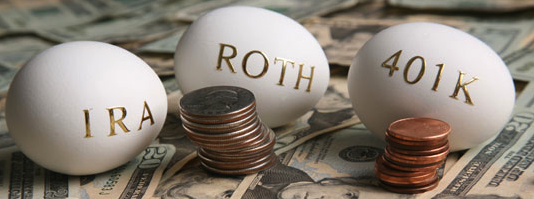Financial independence doesn’t just happen once you turn 65. It takes planning and living on less than you make so that you can save and invest. Regardless of your age though, it’s good to know that it’s never too late to prepare for your retirement.

1. Pay off Your Debt and have an Emergency Fund
If you have not finished paying off your consumer debt or do not have a fully funded emergency fund in place, you want to focus on these things first before you start setting money aside for retirement. You want to set up a debt payment plan that would see you free from your consumer debt within 2-3 years and then very quickly move your focus to getting that emergency fund filled.
When you’re dealing with a reduced retirement income, the last thing that you want to be doing is still devoting income to your debt repayment or emergency savings. The goal here is to make sure you’re on a solid financial footing and are in a place where you can enjoy your retirement income that you’ve worked so hard for.
2. Start Saving and Stick To Your Goals
The sooner you’re able to start saving for retirement and able to stick to your monthly savings goal, the better off you’ll be. Ideally you’ve put yourself in a place where you can begin setting aside 10-15% of your monthly income into your retirem ent account. If you’re debt free including your home feel free to put in more than this.
ent account. If you’re debt free including your home feel free to put in more than this.
In your monthly budget, make sure that you have a line for retirement savings and that you are sticking to your savings goal each and every month.
3. Know Your Retirement Needs
What you’ll need to save is dependent on the type of lifestyle that you would like to have when you retire. Most financial experts suggest that in order to retire comfortably you should aim to cash flow 70-80% of your peak pre-retirement income.
This amount is not written in stone. Many couples can retire on 60-70% of their pre-retirement income providing that they are debt free and their children are financially independent. There are many retirement calculators that you can use to help you determine how much is enough when saving for your retirement.
4. Contribute to Your Employers Retirement Savings Plan
If your employer offers a 401(k) plan, you want to make sure that you take advantage of it. Not only will you be able to take advantage of compounding interest, but your taxes will be lower, your employer may offer a match to kick in extra money, and automatic deductions make saving easy.
If your employer offers a traditional pension plan, you want to make sure that you ask for an individual benefit statement (if one isn’t sent to you automatically every year) to see what your benefit is worth. If you are planning on a career change or changing employers, you also want to find out what will happen to your pension benefit.
5. Put Money into an Individual Retirement Account
Don’t just stop your retirement planning with your company’s 401(k) option or pension. You also want to make sure that you take advantage of the tax benefits that an Individual Retirement Account (IRA) offers.You can put up to $5,500 a year into an IRA and you can contribute even more if you are over the age of 50.
There are two different types of IRAs to choose from. If you go with a Traditional IRA, the yearly contributions you make are tax deductible on both your state and federal income tax while any withdrawals are taxed at your income tax rate. The Roth IRA provides no tax break on the contributions, but earnings and withdrawals are generally tax-free.

6. Find Out About Your Social Security Benefits
Social Security pays benefits that are on average 40 percent of what you earned before retirement. You can use a retirement estimator to see what your expected benefit may be as you get closer to your retirement age.
7. Ask Questions
When preparing for retirement, the most important thing you can do is ask questions. Not only ask, but make sure that you understand the answers that you are given.
Be sure to ask your employer and union about retirement planning that is available through work. You also want to talk to a financial advisor when setting up your investments to make sure that your investments are diversified and you are taking the appropriate risk level for your age, goals, financial circumstances, and your personal comfort level.
Your Turn!
- What are your retirement goals?
- What steps have you taken to help reach them?
You got me when you said that you should aim to cash flow 70-80% in order to retire comfortably according to most financial experts. My husband and I are planning to retire 8 years from now. We want to make sure that we won’t financially struggle should we retire since we always want to have the ability to buy all our needs. We’ll be sure to hire a financial planner that can help us plan for our retirement.
What a fantastic post! This is so chockful of useful information. Thanks for giving me such excellent & applicative Information. Your exuberance is refreshing.